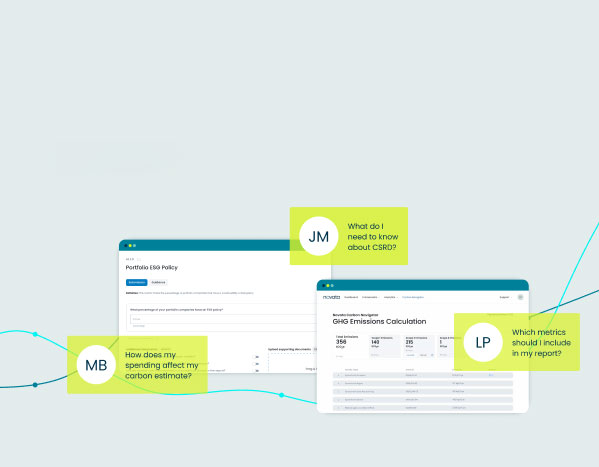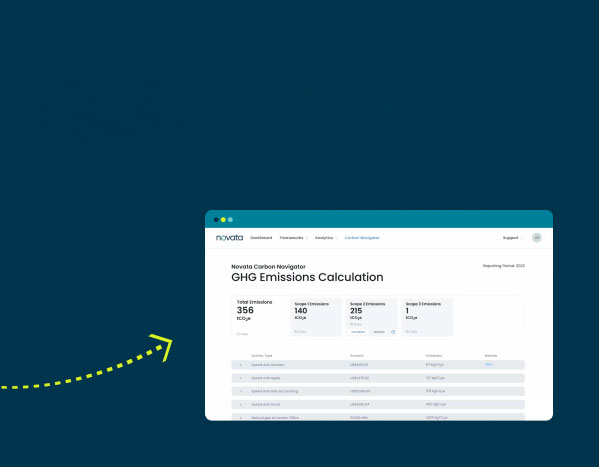In preparing for the European Union’s Corporate Sustainability Reporting Directive (CSRD), companies must disclose impacts across environmental, social, and governance criteria. Affecting more than 50,000 companies, this unprecedented regulation is radically changing the scope of ESG reporting, increasing transparency and the circulation of public non-financial information. CSRD will be implemented in phases, with the first phase affecting companies with over 500 employees who were previously subject to the Non-financial Reporting Directive (NFRD), coming into effect in 2025 for 2024 data.
The comprehensive and complex nature of the regulation is one challenge with CSRD compliance. However, many companies may find themselves in an opportune position if they have already reported to or complied with other standards and frameworks. The European Financial Reporting Advisory Group (EFRAG), the technical advisory body responsible for drafting the set of requirements that will be used to report to the CSRD, has coordinated with other standard-setting bodies, including the International Sustainability Standard Board (ISSB) and the Global Reporting Initiative (GRI), to assess interoperability between existing standards and the CSRD.
As a result, companies that have already complied with these standards may be more prepared to report than they realize, especially if they’ve begun tracking their greenhouse gas emissions, undergone a double materiality assessment, or identified key areas for improvement in regards to climate risks and opportunities as outlined by other existing frameworks.
This article will breakdown relevant regulations and standards that align with CSRD to show that you might be more prepared than you think.
Breaking Down CSRD Interoperability
SFDR
The Sustainable Finance Disclosure Regulation (SFDR) came into effect in 2021 and mandates financial market participants disclose their investment practices to drive sustainable investment decisions. Accounting for sustainability-related risks and adverse impacts helps inform investors and drive transparency at the entity and product level.
SFDR and CSRD are complementary regulations that aim to increase sustainability reporting and private market accountability. Many mandatory cross-cutting requirements in the European Sustainability Reporting Standards (ESRS) are also required as part of SFDR reporting, including the disclosure of capital expenditures and company revenues related to sustainable activities. Both regulations also require varying degrees of greenhouse gas emission disclosures. Investors reporting under SFDR may have already collected some required information across the portfolio. Paying close attention to where ESRS and SFDR requirements overlap can help prevent duplication of efforts and reduce the reporting burden on portfolio companies.
IFRS Standards in ESG reporting
In June 2023, the ISSB released IFRS S1 and S2 Sustainability Disclosure Standards. IFRS S1 establishes the guidelines for the disclosure of financial information related to sustainability reporting, while IFRS S2 outlines the technical requirements for a company to report on sustainability-related risks and opportunities. Both IFRS S1 and S2 incorporate and build on the recommendations of the Task Force on Climate-related Financial Disclosures (TCFD).
Citing a need for international convergence of sustainability standards, the European Commission, EFRAG, and the ISSB have jointly confirmed a high degree of interoperability between ESRS and IFRS S1 and S2. All of IFRS S1 and S2 are included in ESRS E1 climate change requirements, with covered topics including Scope 1-3 emissions, adaptation measures and targets, and financial implications of climate risk. This means that companies that already account for these standards in their reporting are well on their way to being ready to report. However, it is worth noting that the ESRS requirements go one step further to consider broader sustainability topics like greenhouse gas removal schemes, climate transition efforts and associated risk exposure, as well as required reporting on impacts along the value chain.
GRI Standards
GRI has been heavily involved with the development of the draft ESRS. In late 2023, GRI and EFRAG published two resources highlighting areas of overlap between GRI and CSRD: the GRI-ESRS Interoperability Index and the ESRS-GRI data point mapping. Both resources offer insight for companies to better integrate CSRD reporting compliance into already existing reporting processes. There is a high degree of commonality in reporting topics related to the identification of material topics, as well as energy, emissions, biodiversity, waste, employment and labor management, diversity composition of the workforce, anti-corruption, and human rights. There are, however, also varying degrees of granularity where GRI or ESRS requires further breakdown on a topic or where one favors qualitative versus quantitative information.
Additionally, the CSRD requires companies to conduct a double materiality assessment, which acknowledges risks and opportunities that extend beyond financial dimensions, and includes information about how a company’s activities may impact the wellbeing of people and the environment. GRI standards also reference the concept of double materiality, so companies already reporting against these standards are well on their way to being compliant.
CSRD Reporting with Novata
In addition to conducting a double materiality assessment, the CSRD requires companies to undertake independent assurance of their sustainability reports and reported metrics. To prepare for the first phase of CSRD reporting, companies should start by identifying what sustainability-related data they already have a process for collecting and specific topic areas for which they have collected data. Organizations that have reported on ESG issues before should also consider lessons learned from the process and leverage opportunities to consolidate information collected.
Building a strong foundation and developing robust governance protocols now can help companies be better prepared to meet reporting deadlines with high-quality, assured data. Learn more about CSRD reporting and take our assessment to learn when you need to report.






